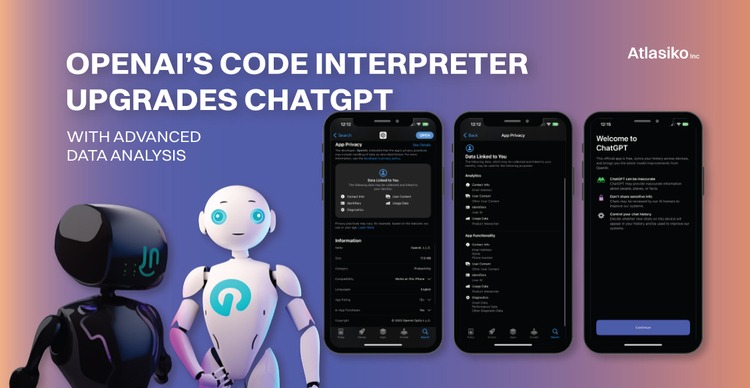OpenAI has made a significant move to expand the capabilities of its ChatGPT service by introducing third-party software application plug-ins. This development, initially announced in March, allows users to enhance the functionality of ChatGPT, including the ability to read full PDFs. In the latest update, OpenAI has decided to make one of its in-house plug-ins, called Code Interpreter, available to all ChatGPT Plus subscribers.
Code Interpreter enables ChatGPT to execute code and provides the option to access uploaded files, as explained by an OpenAI spokesperson in the company's release notes blog for ChatGPT. With this plug-in, users can instruct ChatGPT to perform various tasks such as data analysis, chart creation, file editing, mathematical operations, and more. Thanks to its extensive toolkit and large memory capacity, the AI is capable of writing code in Python and manipulating files up to 100MB in size.
Code Interpreter, available exclusively to ChatGPT Plus users, unlocks a multitude of capabilities, empowering them to generate charts, maps, data visualizations, graphics, and even analyze music playlists. Moreover, it allows the creation of interactive HTML files, dataset cleaning, and color palette extraction from images. This rich functionality makes Code Interpreter a powerful tool for data visualization, analysis, and manipulation. It comes as no surprise that ChatGPT power users and influential figures in the tech industry have expressed overwhelmingly positive reactions to this new development.
Linas Beliūnas, Europe country manager and Lithuania GM of Flutterwave, praised OpenAI's latest offering on LinkedIn, stating that it is the company's most powerful feature since GPT-4, and it empowers anyone to become a data analyst. Beliūnas showcased ten examples of new data visualization and analysis tasks he accomplished using Code Interpreter, including the creation of an interactive HTML "heatmap" illustrating UFO sightings across the United States, using an "unpolished dataset."
Ethan Mollick, an associate professor at the Wharton School of the University of Pennsylvania and a prominent AI influencer, expressed his admiration for ChatGPT with Code Interpreter in his Substack newsletter "One Useful Thing." He described it as the most useful and interesting mode of AI he has experienced, highlighting its versatility and ability to provide structured data to support users' arguments. Mollick cited an example where he asked ChatGPT to prove to a skeptic that the Earth is round using code, and the AI responded with multiple arguments, integrating text, code, and images seamlessly.
These new capabilities offered by Code Interpreter not only enhance the user experience but also serve as a response to some users' concerns regarding ChatGPT's perceived limitations and diminishing capabilities over time. Particularly, users in the ChatGPT and AI Reddit subreddits have raised issues regarding restricted conversation topics and lines of inquiry. OpenAI's introduction of Code Interpreter and its associated use cases aims to address these concerns.
Safety remains a top priority in the design of the Code Interpreter. OpenAI is committed to ensuring that the AI-generated code does not have any unintended real-world repercussions. As users explore the plug-in and discover novel applications, OpenAI plans to continually refine safety protocols based on the insights gained from this beta version.
Among the various applications of Code Interpreter, its potential in the field of data science stands out. It has been described as operating at an advanced level, capable of automating complex quantitative analyses, data merging, cleaning, and even reasoning about data in a human-like manner. The AI can generate visualizations and dashboards, which users can further customize through conversations with the AI. Additionally, the ability to create downloadable outputs adds another layer of usability to Code Interpreter.
Mollick believes that Code Interpreter presents the most compelling case to date for AI as a valuable companion in sophisticated knowledge work. While human oversight remains crucial, this new feature reduces repetitive tasks, allowing users to focus on more meaningful and in-depth work.
Code Interpreter is undoubtedly setting a new standard for the future of AI and data science. OpenAI's continuous efforts to push the boundaries of ChatGPT and large language models (LLMs) demonstrate their commitment to innovation and progress in the field.







